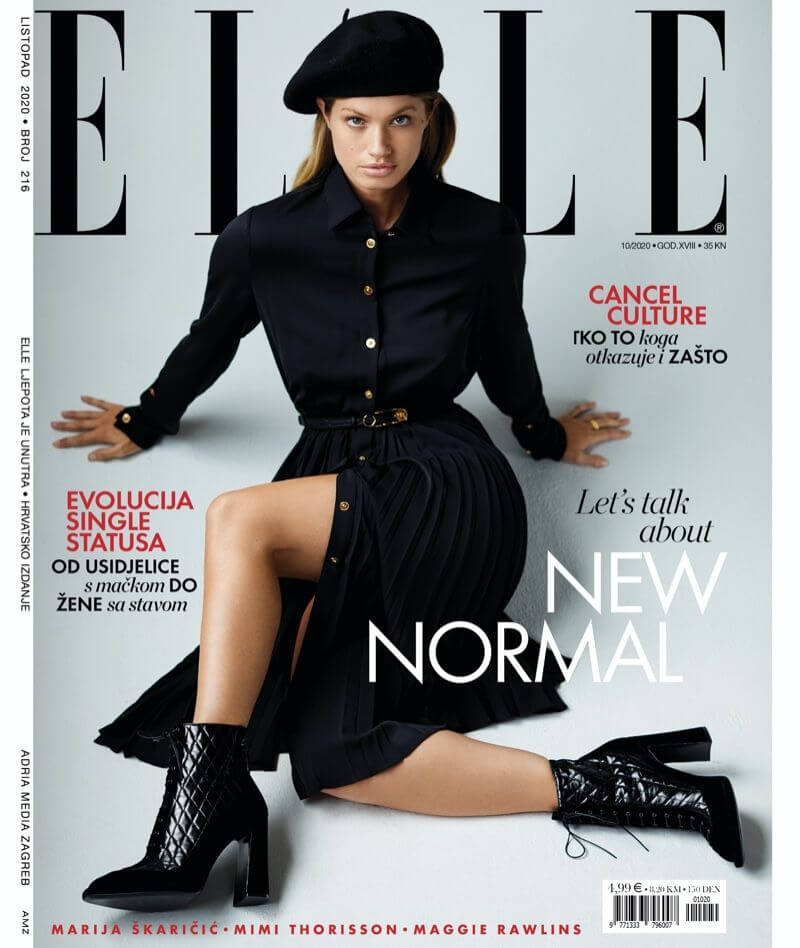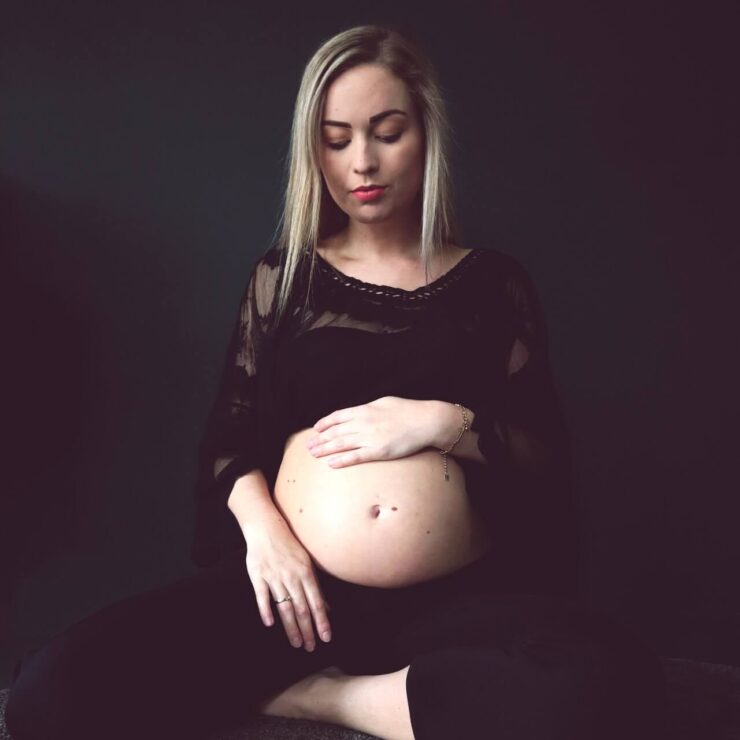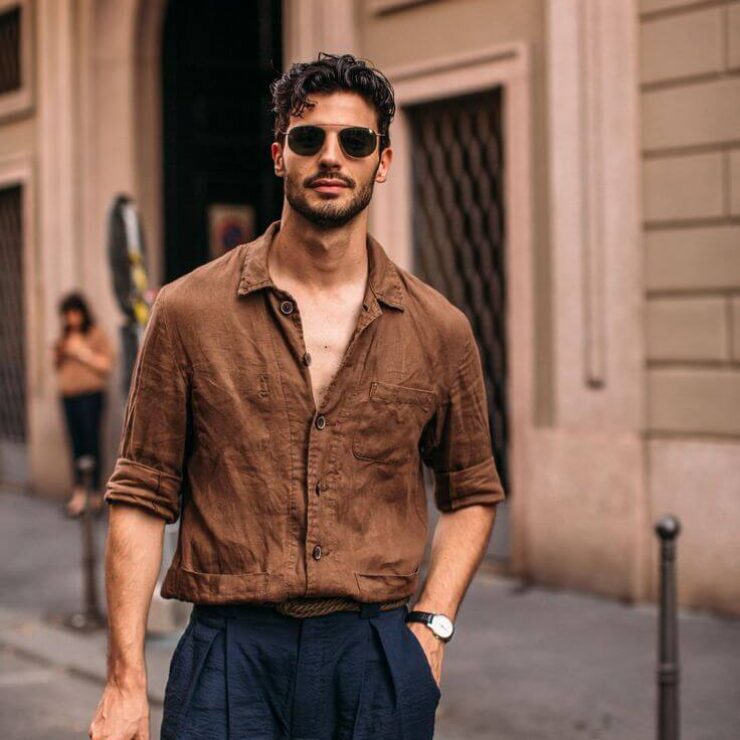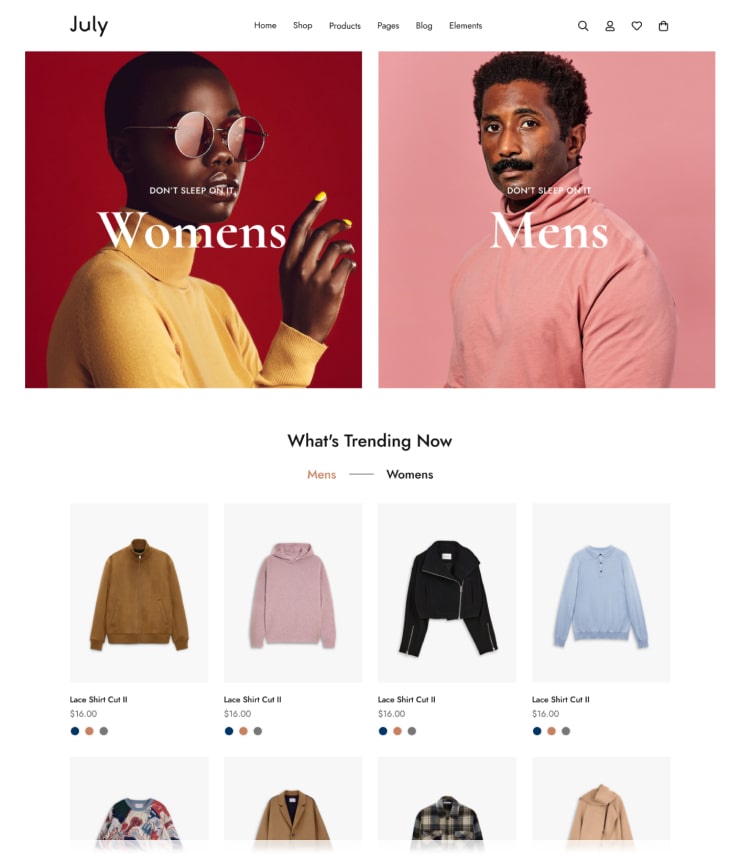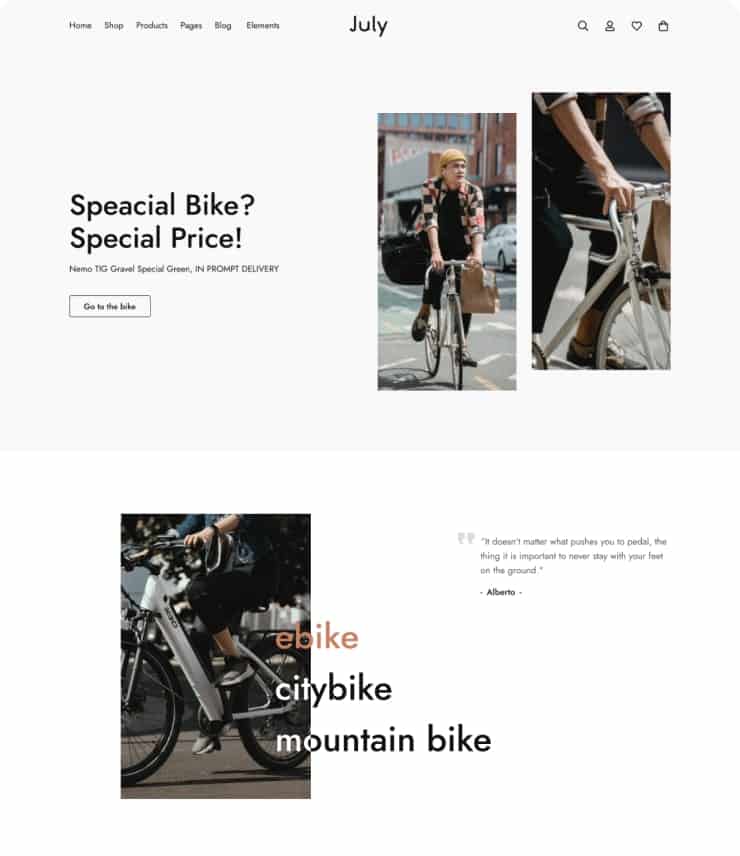Your cart is empty. Add from Wishlist
Before Maggie Rawlins was scouted to be a model and landed in the pages of Sports Illustrated, she was a hematology/oncology nurse in Charleston, South Carolina. As she transitioned to modeling full-time, she kept her nursing license up-to-date so she would be able to practice. When the COVID-19 pandemic hit the United States, she started working on the front lines at a few hospitals in Queens, New York. Fast-forward two years later, she jumped into action again when she learned there was a need for nurses on the Poland-Ukraine border. She traveled to Medyka, Poland, for 10 days to work the night shift with the nongovernmental organization Sauveteurs San Frontieres (SSF), or Rescuers Without Borders. Below, she tells Vogue about her experience.
Maggie Rawlins
A girlfriend, Dr. Danielle Belardo, who is a cardiologist in California heard of an organization that needed medical professionals, so she went over to Poland. I asked if they needed any nurses. She said, “We need all the hands we can get.” I flew into Krakow, Poland, then drove two or three hours to the border. I worked night shifts, from 10 p.m. to 10 a.m. There were a ton of things I wasn’t able to bring, but they needed a lot of pediatric medications. I reached out to my community in Charleston, and they dropped off 140 pounds of meds on my front porch.
We were on the western side of Ukraine and the eastern side of Poland. I didn’t know what to expect at all. There were just hundreds of people. I went because I felt like there was a need there. I don’t have kids, and I don’t have a 9-to-5, so I felt pretty privileged to be able to drop what I was doing and go. I knew that there would be a place to help, but I didn’t know what type of medical issues I would see. We worked mostly as urgent care. We saw gunshot wounds and broken ribs. But we also saw fatigue and people who were taking high-blood-pressure medication or insulin, and they hadn’t been able to go to a pharmacy. There were a lot of COVID cases, kids with respiratory infections. There were people who had been traveling for two or three days, and it was just extreme fatigue, especially in children and the elderly. There was a lot of dehydration. Men can’t leave, so it was women, children, and the elderly.
There were tents lined up with SIM cards and food trucks from all over Europe—there was a Turkish food truck, an Israeli one, different tents serving all different types of food. That was surreal seeing people from all over the world coming to help where they could. It wasn’t just nurses and doctors. There were people making breakfast and hot chocolate for the kids. Maybe four tents down from us, there was a tent that had food for dogs, cats, birds, gerbils, literally any pet you could think of.
It is below freezing. And you’re out in the middle of nowhere and trying to figure out the best way to help someone who has just lost everything they’ve known.
Every story was tragic, but the people I met and their resilience was super inspiring. Even the people I worked with: I had one night shift with a 70-year-old nurse from the South of France and a 71-year-old doctor from Israel. The nurse spoke French and a little bit of English, and the doctor spoke a little bit of French, so we used Google Translate to communicate. Between the hours of 2 and 5 a.m., it slows down, so you have some time where you’re just sitting by this wood-burning stove and hearing their stories. They have both worked with humanitarian organizations their entire lives. One of them has five kids and 18 grandchildren. She’s worked in 30-something countries, and she’s 71 years old, working the night shift, helping people carry their bags across the border.
Another guy, Eladio, came with one of his friends, Dr. Jeffrey Horenstein, who is a doctor in the U.S. Eladio didn’t have a medical background; he had been there five days and had been across the border 52 times. People are crossing on foot, but it’s not like you come to a gate and you step across the border. It’s a long process, and it’s probably half a mile between the Ukrainian border control, no-man’s-land, the Polish border control, and a walk to the tent where you’ll either get on a bus or have someone pick you up.
He had been across the border 52 times because there aren’t really men crossing; it is mostly women and children. If you’re between 16 and 60, you have to stay in Ukraine and fight. Eladio went back and forth with a grocery cart. He’d carry medical supplies over to the tent on the Ukrainian side, and he’d carry luggage back to Poland for people who were struggling. Things like that really touch me because people think you need a medical degree to help, but he was one of the most helpful people there and made the biggest difference.
There were girls from Ukraine who would come over and translate. They were 13, 14, 15, and they’d cross the border and spend the day translating for medical professionals. There was room for everyone to help out. And seeing that was super inspiring in such a dark place. It gave you a glimpse of hope. I was mostly doing triage nursing, so someone comes in, and you take their vital signs and try to get a bit of a history of what’s going on. That’s where the translators came to help. You can’t treat someone without knowing what is going on. The translators there were just vital.
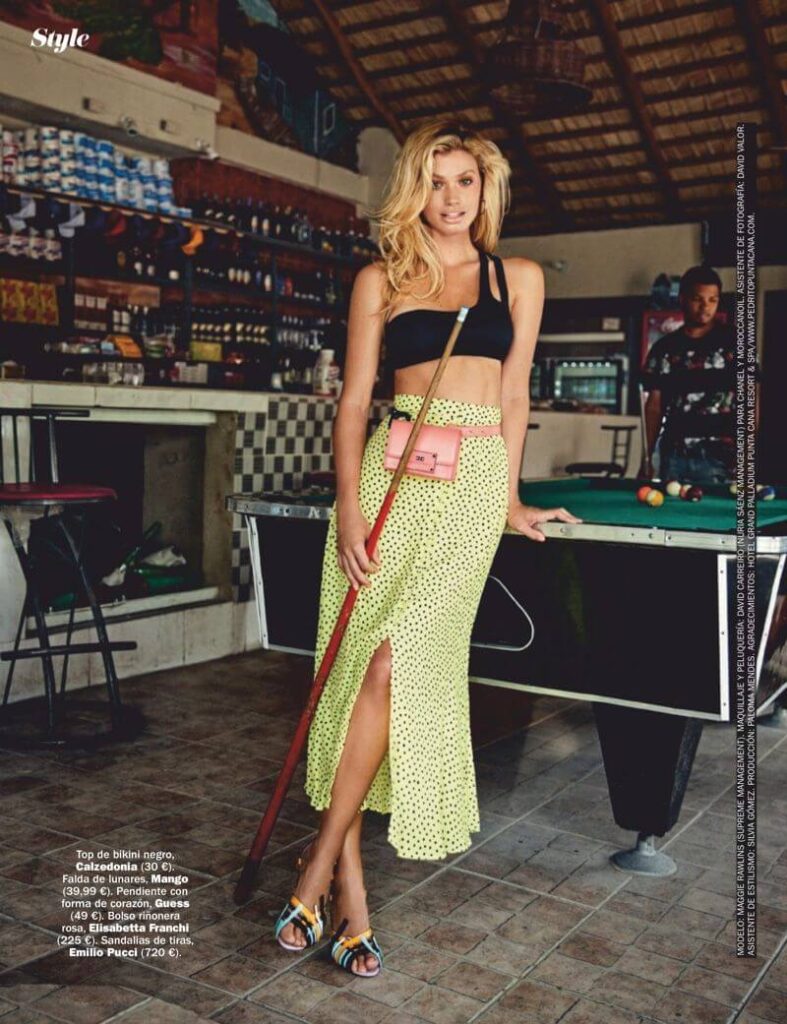
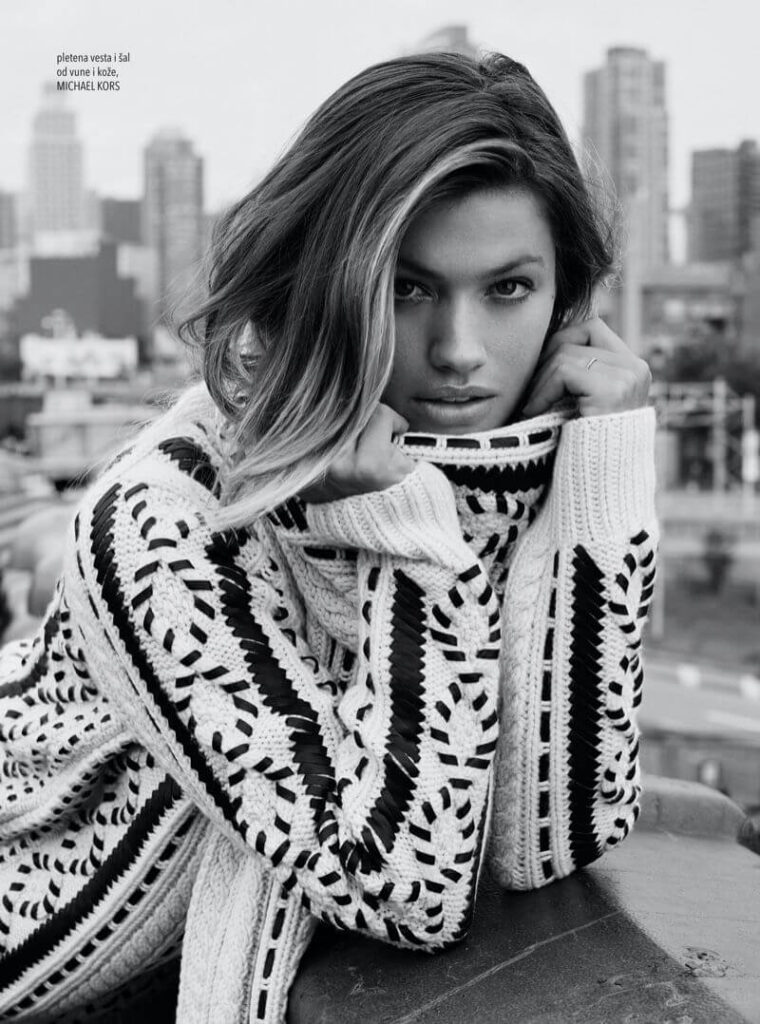
Everything was heartbreaking. The last night I was there, I had an 85-year-old woman come into the tent with her 87-year-old husband who had Alzheimer’s. She was just bawling, “We weren’t going to leave, we weren’t going to leave,” but they had to leave. They have family in Italy coming to pick them up; they’ve never been there before. She didn’t speak English, so we were speaking through a translator. Their lives are completely uprooted.
How can you land there and not immediately want to take off your jacket and give everything away? But that’s not realistic. I came home, and I have a job here and a shoot tomorrow. My brain is a little rattled trying to process the two, and I even feel guilty saying that when I have my home. I don’t know if our brains can process those two extremes. Even though it’s uncomfortable for us, I think we still have to.


